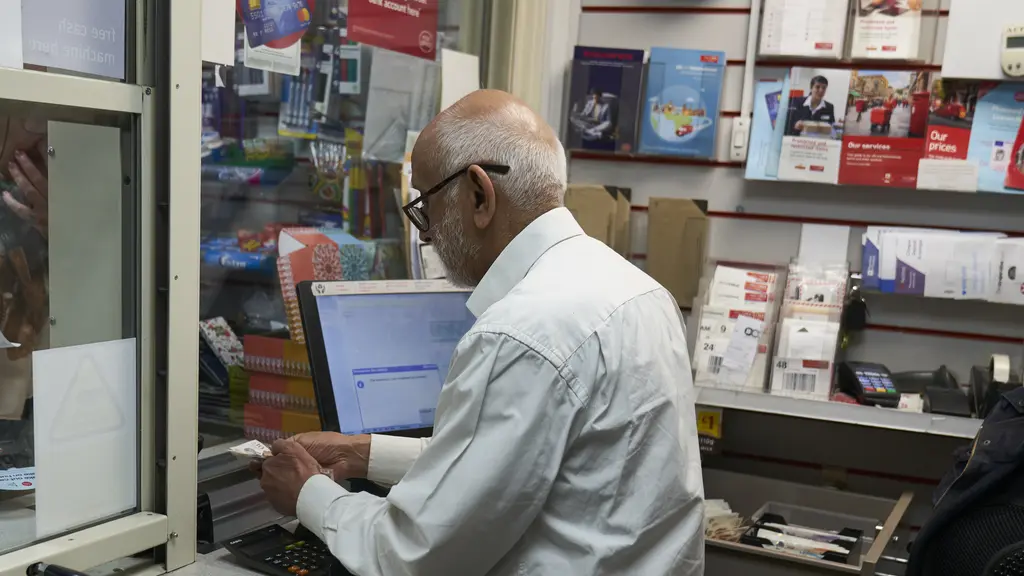There are many stories of famous people who have achieved success at a young age, but we don’t tend to hear so much about well-known individuals whose careers didn’t really gain traction until they were older.
It’s about time that the focus shifted and we recognise and celebrate that talent often flourishes in our 50s and beyond, writes Steve James, Media Officer for the Centre for Ageing Better which runs the Age Without Limits campaign.
The great novelist George Elliot once wrote, “It’s never too late to be what you might have been.” But those words of wisdom often get overlooked in a society that celebrates precocious success. Mozart wrote his first symphony when he was eight years old, we are often told.
However, beyond the confines of famous exceptions it’s usually much later in life that most of us make our mark.
Despite this, in the world of work, the prevailing stereotype is that beyond a certain age, older people can no longer make such a positive, significant impact, despite vast experience and skills accrued over decades.
Our Age Without Limits research recently uncovered that one in four people (24%) think it does not make business sense to employ someone over 50 because they will be a slow worker who will not be able to adapt.
This ageism leads many to feel obliged to disguise educational or qualification dates when job hunting or shortening their CVs to leave out valuable experience in a bid to appear to be more youthful to the jobs market. Some recruitment agencies will actively encourage this strategy.
Overall, more than half of people over 50 believe that they’ve been treated negatively because of their age. And we know that 37% of people in their 50s and 60s who experienced age discrimination in the past 12 months said this most commonly happened in the workplace.
This is such a tragedy because so many have achieved many remarkable things when older.
But repeated projections of youth can lead us to internalise society's negative messages about ageing. This can lead us to adopt those beliefs and limit our own behaviours and opportunities. This can result in us viewing ourselves as "too old" for certain activities.
To counteract this, it’s vital that we remember and recognise those who have made a significant impact in their 50s, 60s and older. It provides a healthy antidote to the pervasive cult of youth.
For example, Bernadine Evaristo, the British Nigerian author of books of fiction and verse won the Booker Prize for her novel, ‘Girl, Woman, Other’ in 2019 when she was 60.
Levi Roots secured funding on the BBC show Dragons' Den at age 50. This led to the success of Reggae Reggae Foods sauces and sales of £1m within its first year.
Such an irony when a quarter of people believe hiring workers over 50 is unwise for business. And a third of people aged over 50 think they have been turned down for a job because of their age. This is despite study after study showing that you are more likely to launch a successful business in middle age or beyond.
In the world of acting, Helen Mirren became a household name in her 50s before winning her first Academy Award for The Madness of King George at 62.
Charles Darwin was 50 years old when ‘On the Origin of Species’ was published in 1859, and he continued working for the rest of his life.
British space scientist Dr Maggie Aderin-Pocock (born 1968) became prominent later in her career, gaining public recognition through media and outreach.
It seems absurd, therefore, when people's talents, experience, intelligence, and ambitions are compromised by ageist attitudes at work.
Potential isn’t realised and hopes are unfulfilled. Everyone loses when ageism dominates perception. Not least, young people who can be denied access to mentors and positive role models.
And speaking of role models, how about Arianna Huffington who founded her namesake news publication, The Huffington Post, at age 55. Or Nelson Mandela who became South Africa's first democratically elected president at the age of 75.
Also, we shouldn’t forget Vivienne Westwood who launched her iconic designs like the mini-crini skirt and tweed suits when she was in her 50s.
It’s so important to remember that so much has been achieved by people in later life. By doing so we can adopt a healthy and balanced perspective on the course of human endeavour.
We have to call ageism out for what it is – it’s discrimination against someone because of their age. Sadly, ageism is so deeply embedded in society, consciously and subconsciously, it’s easy to lose sight of the damage it causes to individuals, the economy and society.
But by challenging myths and damaging stereotypes, we can begin to appreciate that it’s not age that so often holds us back – it’s ageism.
Find out how you can challenge ageism in the workplace here.
